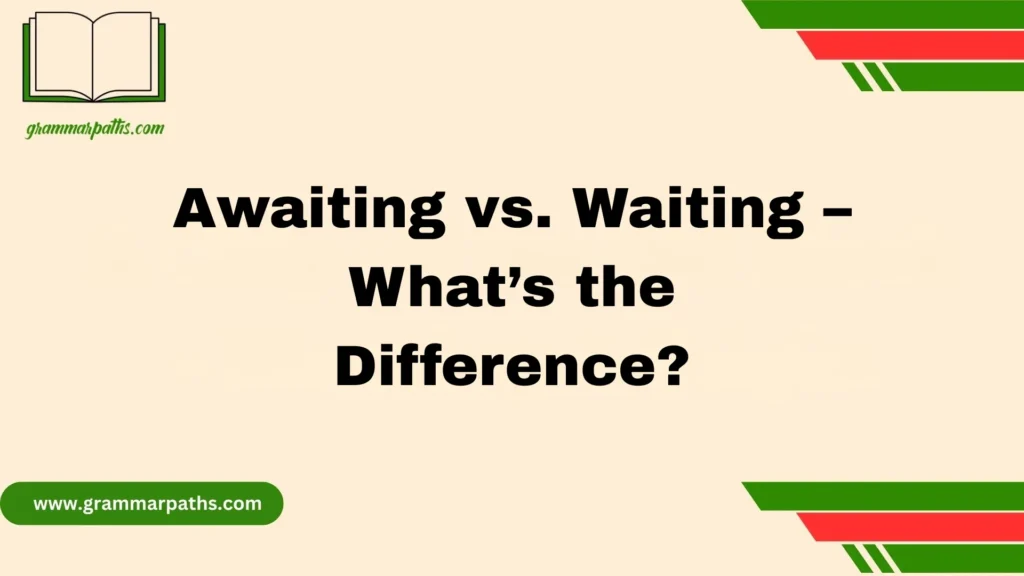Many English learners wonder whether to say “if she was” or “if she were”—and the answer depends on the grammar mood. Use “if she were” when you’re talking about something hypothetical or unreal, like in the subjunctive mood. For example: “If she were taller, she could reach the shelf.” It may sound odd, but it’s grammatically correct in formal English.
On the other hand, use “if she was” when you’re talking about a real possibility or past event, like: “If she was at the meeting, I didn’t see her.” The confusion comes from verb tense, English conditionals, and the way we speak casually. A good rule? “Were” = unreal; “was” = real. Knowing the difference boosts your writing, avoids common grammar mistakes, and helps you sound more confident in both speaking and formal writing.
Quick Answer: If She Was vs. If She Were
If she were → For hypothetical or unreal situations
If she was → For real or possible past events
If she were CEO of this company, she would implement those changes.
If she was in the office yesterday, I didn’t see her.
Understanding the Subjunctive Mood
At the heart of the “if she were” rule lies the subjunctive mood—used for wishes, hypotheticals, and improbable scenarios.
- It signals something contrary to reality, like a dream or possibility.
- Outside “if” clauses, you still see it in sentences like “I wish I were able” or “It’s essential that she be informed.”
When to Use “If She Were”
Use if she were in scenarios that aren’t based in reality:
- Hypotheticals: If she were taller…
- Imaginary comparisons: If she were a bird…
- Wishes/regrets: If only she were here…
Examples of “If she were”:
- If she were president, she’d advocate for change.
- If she were at the concert, she’d be thrilled.
In writing, “if she were” shines in formal and academic contexts.
When to Use “If She Was”
Use if she was for real, verifiable events in the past:
- If she was late, I misunderstood.
- If she was in town last week, I missed her.
This phrase matches everyday use—perfect for casual, factual statements.
Spoken vs. Written English
- Casual speech tends to favor “if she was”, even in hypotheticals.
- In formal or professional writing, “if she were” preserves grammatical correctness.
- Writers often “bend the rule” in dialogue to match realistic speech patterns.
Common Pitfalls and Confusions
- Mistaking “were” as plural-only: she were is correct in subjunctive, not plural.
- Merging real/hypothetical thoughts: Sentence confusion when mixing both.
- Overlooking mood: Choosing “was” when “were” is clearly called for.
- Other verbs also show subjunctive—like if he were or if I were for people/subjects of any kind.
Trick to Remember the Rule
- Is it possible or real? → was
- Is it imaginary or ideal? → were
Tip: Associate were with wishful thinking. If you’re dreaming it, use were.
Formality Matters: Grammar vs. Usage
- Academic writing (essays, official papers): Stick with the formal “if she were.”
- Emails or blog posts: You can sometimes relax – but clarity comes first. Remember, staking a claim in writing = clarity.
Real-World Examples
| Media Type | Example Sentence |
| Literature | “If she were the queen…” |
| Movie Dialogue | “If she was your sister, I’d know it.” |
| Social Media | “If she were here rn…” (yep, subjunctive!) |
Grammar Authority Insights
- Merriam-Webster: Use “were” for wishes/hypotheticals
- Cambridge Dictionary: Were is preferred for unreal situations, “was” for past presumptions
- Oxford English Dictionary: Confirms subjunctive correctness in formal contexts
Practice Quiz
Select the right form:
- If she ___ (was/were) a singer, she’d tour the world.
- If she ___ (was/were) at the event, we spoke.
- If only she ___ (was/were) braver.
- If she ___ (was/were) here yesterday, you’d have met her.
Answers: 1. were 2. was 3. were 4. was
Quick Reference Table
| Scenario | Which to Use | Example |
| Hypothetical or wishes | were | If she were taller, she’d dunk. |
| Actual past event | was | If she was there, I missed her. |
FAQs:
Which is correct: if she was or if she were?
“If she were” is typically correct when referring to hypothetical or unreal situations, especially in formal or written English. “If she was” can be acceptable when referring to a real or possible past event, though it’s less common.
Which one is correct: if it were or if it was?
“If it were” is used for imaginary, hypothetical, or contrary-to-fact conditions. “If it was” refers to something that might have actually happened in the past. Context matters in choosing between them.
Do you say if he was or if he were?
You say “if he were” when imagining a scenario that’s not real or is contrary to fact. Use “if he was” when referring to a specific past situation that might be true.
What is used with if was or were?
Use “were” with unreal, hypothetical, or contrary-to-fact clauses (subjunctive mood), and “was” with real, past-tense scenarios. Example: “If he were taller…” vs. “If he was at the meeting…”
Can I say she was?
Yes, “she was” is perfectly correct when you’re talking about a real event in the past. Example: “She was at the party last night.”
Is it correct to say if she were here?
Yes, “if she were here” is correct and commonly used to describe a hypothetical or unreal present situation. It suggests that she is not actually here but you’re imagining it.
Conclusion:
Understanding the difference between “if she was” and “if she were” goes beyond memorizing a rule—it’s about knowing the tone, context, and meaning behind your words. Whether you’re writing a formal essay or speaking casually, choosing the correct form shows your grasp of English grammar and helps you communicate more clearly and confidently.
So next time you hesitate, just remember: use “if she were” for hypothetical or imaginary situations, and “if she was” for real, possible, or past events. Mastering this subtle distinction not only avoids confusion but also polishes your language skills for good.

Grace Marie is the dedicated writer behind GrammarPaths.com, where she shares her passion for English grammar, idioms, and writing mastery. With a strong background in language studies and years of experience helping learners improve their communication skills, Grace creates clear, practical, and engaging content that makes English easy to understand.










